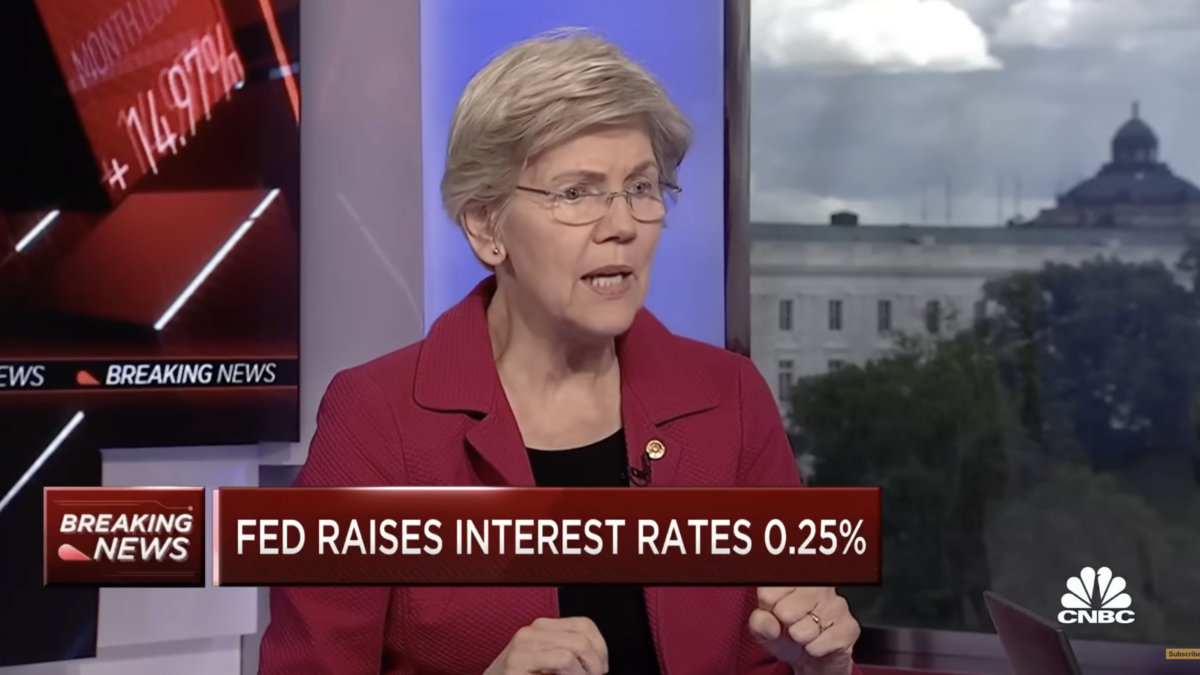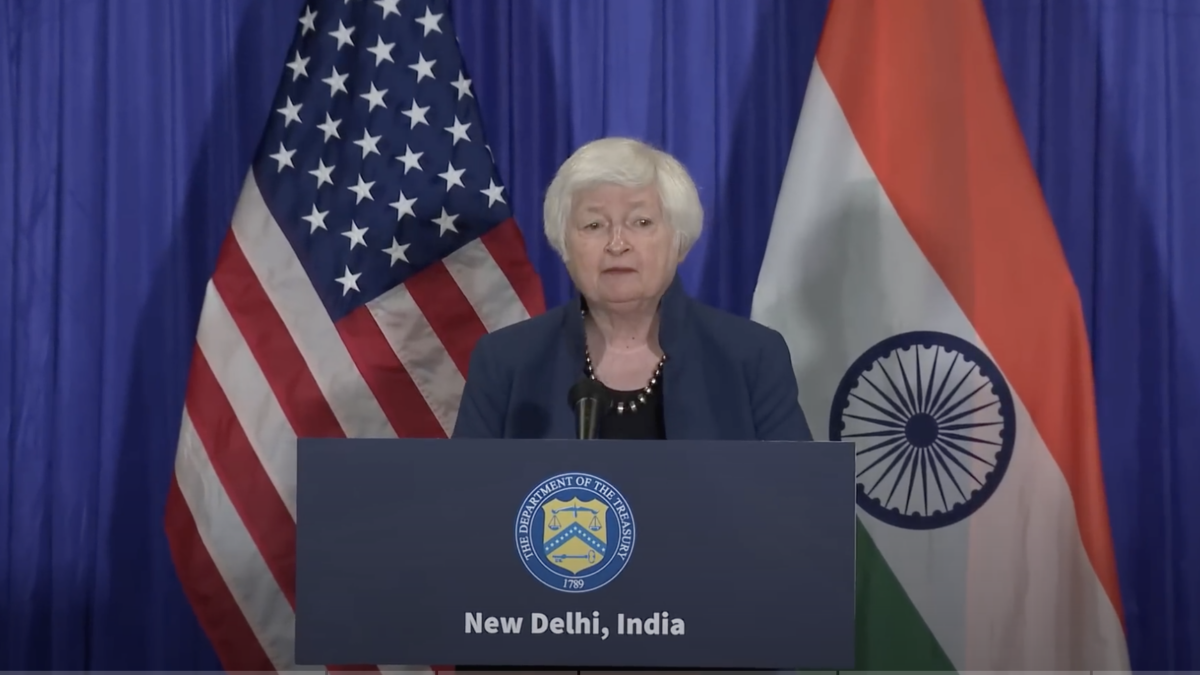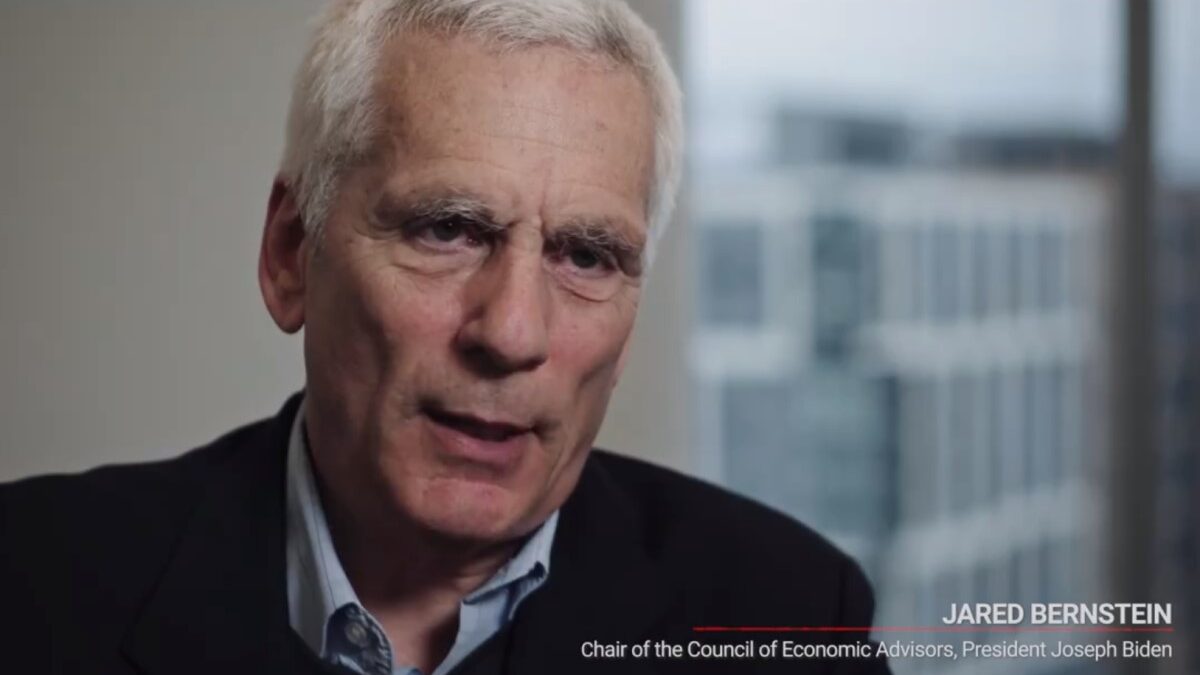Spare some crocodile tears for Sen. Elizabeth Warren. She finally discovered one of the basic principles of economics — in an election year and at a time when said principles are proving politically inconvenient to her and her Democratic colleagues.
Recently, the Massachusetts Democrat and three of her Senate Democrat colleagues wrote to Federal Reserve Chairman Jay Powell asking him to begin lowering interest rates. The missive, which invoked the hardships families are facing around the country under the current interest rate environment, would sound far more reasonable if Warren and her allies hadn’t created many of the conditions making the interest rate hikes necessary in the first place.
Consequences of Interest Rate Policies
The letter from Warren and her colleagues focuses on the housing market and specifically the lack of affordability. It complains that “mortgage rates have risen to 20-year highs in the past year — a direct result of the Federal Reserve’s campaign of aggressive hikes to the federal funds rate.” It notes that “interest rates are still too high for many American families,” and urges the Fed “to consider the effects of your interest rate decisions on the housing market and to reverse the troubling rate hikes that have put affordable housing out of reach for many.”
Indeed, families are struggling to afford their first home, putting the American Dream out of reach for many. But Warren’s simplistic formulation ignores many politically inconvenient truths, most of them centered around the ways in which government meddling over the past several decades — by lawmakers themselves, as well as the Fed — has created the current problem.
Interest Rates Were Too Low for Too Long
Warren and her “easy money” colleagues omitted any discussion of low interest rates from their letter. But the fact remains that, over the past two decades, a series of decisions by the Fed, from keeping interest rates low in the 2000s to rounds of quantitative easing (i.e., printing money) during the financial crash and the pandemic, got most of the American economy addicted to cheap money.
That trend swallowed up big businesses, Wall Street and the financial sector, and ordinary Americans looking to buy homes. On an actuarial and economic basis, the concept of a 30-year mortgage at a 3 percent interest rate seems totally unrealistic, and it was until the Fed started, and kept, intervening in financial markets with its proverbial printing presses.
But because persistent and cheap money juiced housing prices into the stratosphere, it will take a period of time, likely several years, for both buyers and sellers to figure out the “real” value of properties in a more normal interest rate environment. Trying to short-circuit that process by stimulating more demand will only yield another round of “boom-and-bust” that already brought us a historic financial crash and some of the highest inflation in four decades.
Low Interest Rates Punish Savers and Retirees
Warren and her colleagues ignore the flip side of the persistently low interest rate environment of the past two decades: Retirees and people who save money got the proverbial shaft. For most of this century, savers have faced the heretofore rare phenomenon of negative real interest rates — that is, individuals who left their money in the bank would see the value of that money eroded every year by inflation.
And while younger individuals can afford to move more of their assets from “savings” accounts paying 0.5 percent into stocks or bonds, older Americans could lose their retirement assets should they do so. Yet that’s the prospect retirees have faced: They could either roll the dice in the stock market and see a crash wipe away much of their life savings (as it did to some in 2008-2009), or keep their money in the bank to earn bupkis in interest, and see its value diminish with each passing year.
The Spending Binge Encouraged Higher Rates
It should go without saying, but the Federal Reserve needed to raise interest rates so high, and so quickly, due in no small part to the inflation sparked by trillions of dollars of “stimulus” spending during the pandemic. While Warren and her colleagues attacked the Fed’s interest rate hikes, they said not a word about the reasons for said hikes because to do so would have forced them to look in the mirror.
This space has previously criticized Powell for keeping interest rates so low for so long during the pandemic, even as inflation persisted in late 2021 and into 2022. But at least Powell has had the decency to apologize for the Fed’s inaction, most recently during his interview with “60 Minutes”: “In hindsight, it would’ve been better to have tightened [monetary] policy earlier. I’m happy to say that.” I won’t hold my breath waiting for Warren to apologize for the effects of Washington’s big-spending binge in sparking the highest inflation in two generations.
Don’t Create Another Bubble
Given how wrong Warren and her ilk have been on the problems associated with easy money — both low interest rates and high spending — the Fed should pay the senators’ latest missive little heed. Rebalancing the housing market will take time, and yes, it may cause some pain for some families. But a change in the way houses get sold may provide some price relief to buyers in the immediate future.
Ultimately, Warren’s strategy of stimulating “affordable” housing through more government interventions and cheap money will just artificially inflate asset prices again. And as the past few years have demonstrated, Americans don’t need government creating more inflation headaches for them, whether that comes to pumping up home prices or raising the cost of staples at the grocery store.








